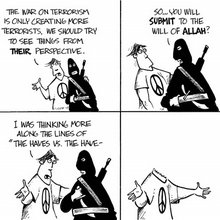“Just hitting another
brick wall”
 Rep. Henry A. Waxman
Rep. Henry A. Waxmantrying to muzzle
American citizens:
When Rep. Henry A. Waxman, chairman of the Committee on Oversight and Government Reform of the House, introduced H.R. 984, the Executive Branch Reform Act, last month, he promised it represented "good government" reform.
Opponents of a new executive branch lobbying reform bill working its way through the U.S. House of Representatives warn that it will impede an ordinary citizen's absolute right to communicate with government officials.
Critics, think it should be renumbered "H.R. 1984" because of the looming specter of an Orwellian "Big Brother."
To be honest, the legislation, among a host of other provisions, stops the practice of "secret" meetings between lobbyists and executive branch officials by requiring all political appointees and senior officials in federal agencies and the White House to report the contacts they have with lobbyists and other private parties seeking to influence official government action, but there are many concerns over the language in the controversial H.S. 984.
"Not later than 30 days after the end of a calendar quarter, each covered executive branch official shall make a record of, and file with the Office of Government Ethics a report on, any significant contacts during the quarter between the covered executive branch official and any private party relating to an official government action. If no such contacts occurred, each such official shall make a record of, and file with the Office a report on, this fact, at the same time."
Under H.R. 984, thousands of executive branch officials would be required to file quarterly reports containing the timing and substantive details of "any significant contact" they receive on a policy matter — not only from lobbyists, but from any "private party" — a term defined in the bill to include "any person or entity" other than other government officials, or representatives of such officials such as congressional staff persons. The bill defines a "significant contact" as any "oral or written communication (including electronic communication) . . . in which such private party seeks to influence official action by any officer or employee of the executive branch of the
This requirement would apply to communications whether they were one-way or two-way, and whether they were solicited or unsolicited. Every e-mail, fax, letter, or voicemail expressing a view on a policy matter would have to be reported. Each and every conversation in which any ‘private party' expressed herself to an official on a policy matter would have to be reported — whether the conversation took place in a formal meeting, or on the phone, or in a random encounter at a church or synagogue, or in a private conversation with a spouse."
Rev. Louis P. Sheldon, chairman and founder of the Traditional Values Coalition states: "H.R. 984 creates an elaborate and unneeded reporting system for executive branch officials — more than 8,000 — who will be required to file complicated reports four times a year,"
Sheldon goes on to say: "Making a mistake can result in a $50,000 fine. Every contact made by executive branch employees must be recorded under Waxman-Davis [a Republican on the committee, Rep. Tom Davis of
Says
Can you say: “Well hush my mouth?”

“Abouna” Gregori














|